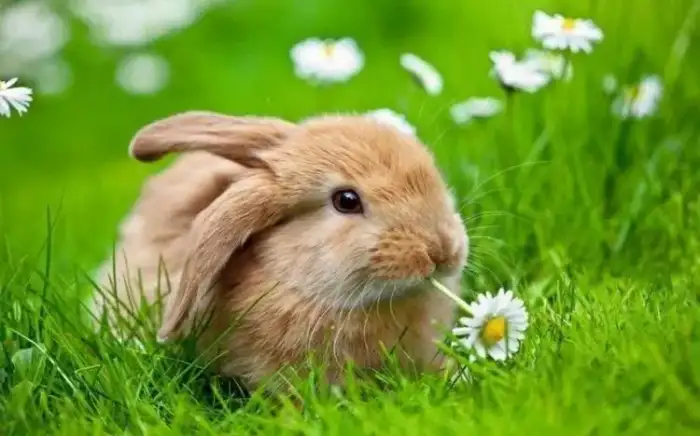When it comes to caring for rabbits, nutrition is paramount. A well-balanced diet not only promotes a rabbit’s health but also enhances their quality of life. This guide will delve into the best vegetable choices for rabbits, ensuring they receive the essential nutrients needed for optimal growth and well-being.

1. Understanding a Rabbit’s Nutritional Needs
Importance of a Balanced Diet
Rabbits are herbivores, which means their diet primarily consists of plant-based foods. A balanced diet is crucial for maintaining their digestive health, supporting dental wear, and preventing obesity.
Key Nutritional Components
- Fiber: Essential for healthy digestion and preventing gastrointestinal stasis.
- Vitamins and Minerals: Important for overall health, bone strength, and immune function.
- Water: Fresh, clean water is vital for hydration.
2. Choosing the Right Vegetables for Rabbits
2.1. Leafy Greens
Examples of Leafy Greens:
- Romaine Lettuce: A great source of vitamins A and K, but should be fed in moderation due to its high water content.
- Kale: Rich in calcium and vitamins but should also be given in moderation to avoid excessive calcium intake.
2.2. Non-Leafy Vegetables
Examples of Non-Leafy Vegetables:
- Bell Peppers: Packed with vitamins A and C, they are a tasty treat for rabbits.
- Carrots: While often associated with rabbits, they should be given sparingly due to their high sugar content.
3. The Importance of Variety
Providing a Diverse Diet
Offering a variety of vegetables ensures that rabbits receive a broad spectrum of nutrients. This variety also keeps mealtime interesting for them.
Seasonal Vegetables
Consider incorporating seasonal vegetables into your rabbit’s diet. Seasonal offerings often contain the freshest nutrients and flavors.
4. Safe and Unsafe Vegetables
4.1. Safe Vegetables for Rabbits
- Cucumber: Hydrating and low in calories, cucumbers can be a refreshing treat.
- Zucchini: This summer squash is safe and provides fiber and vitamins.
4.2. Unsafe Vegetables to Avoid
- Potatoes: Toxic to rabbits, they should never be fed.
- Onions and Garlic: These can be harmful and should be completely avoided.
5. Introducing New Vegetables
5.1. Gradual Introduction
When introducing new vegetables, do so gradually. Start with small amounts to see how your rabbit reacts. Monitor for any signs of digestive upset.
5.2. Signs of Digestive Issues
Look for signs such as diarrhea, bloating, or decreased appetite. If any symptoms arise, consult your veterinarian immediately.
6. Preparing Vegetables for Your Rabbit
6.1. Washing and Chopping
Always wash vegetables thoroughly to remove pesticides and dirt. Chopping them into small, manageable pieces can help your rabbit eat more easily.
6.2. Serving Fresh Vegetables
Fresh vegetables should be served daily. Aim for a mix of leafy greens and other vegetables to ensure a balanced diet.
7. The Role of Hay in Rabbit Nutrition
Importance of Hay
While vegetables are crucial, hay should make up the majority of a rabbit’s diet. It provides the necessary fiber to maintain healthy digestion.
Types of Hay
- Timothy Hay: High in fiber and ideal for adult rabbits.
- Orchard Grass Hay: A softer option that some rabbits prefer.
8. Treats and Extras
Occasional Treats
While vegetables are a staple, occasional treats can enhance your rabbit’s diet. Consider herbs like parsley or basil as tasty rewards.
Moderation is Key
Treats should only make up about 5-10% of your rabbit’s total diet to avoid weight gain and health issues.
9. Monitoring Your Rabbit’s Health
Regular Vet Check-ups
Routine veterinary visits are essential for monitoring your rabbit’s health and nutritional needs. Your vet can provide guidance tailored to your rabbit’s specific requirements.
Recognizing Signs of Malnutrition
Watch for signs such as weight loss, lethargy, or changes in stool. These may indicate nutritional deficiencies and warrant a visit to the vet.
Conclusion
Providing balanced nutrition for rabbits is essential for their health and happiness. By offering a variety of safe vegetables, ensuring a fiber-rich diet with hay, and monitoring their health, you can ensure that your furry friend leads a healthy and fulfilling life. Remember, a well-fed rabbit is a happy rabbit!

Comments (0)